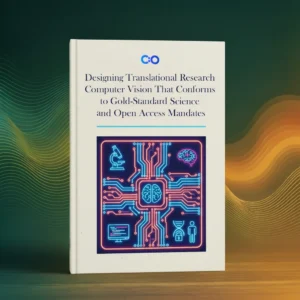

Amidst a shifting reality for many, how will we respond to the COVID-19 pandemic?
As the global health crisis escalates, humanity encounters a period of transformation and reflection. Apart from the pathophysiological threat to our health, the potential effects of any disease on a population, such as the COVID-19 pandemic, extend to and can seriously alter our conventional psychological and behavioral responses to threats (1).
Yet this moment is a window; unprecedented uncertainty and widespread vulnerability, byproducts of the pandemic itself, offer introspective consideration of the psychosocial implications of crises.
What is it about crises that prompt us to mobilize for the greater good? Are we innately motivated to self-sacrifice, and how do extreme circumstances change that?
The idea of altruism, behaving in ways that decrease an individual’s proximate fitness, is a curious caveat to Darwin’s theory of evolution by natural selection. Evolutionary biologists and behavioral ecologists alike posit several theories justifying the mechanisms of altruistic behaviors observed in nature. Yet, when considering the elaborate cognitive complexity of humans and the influence of an intricate globalized society, the study of our behavior becomes, well, messy and necessarily relies on an interdisciplinary approach.
Cooperative behaviors often require interplay between both individual and collective altruism; as the action increases in scale, so too do the requirements on both the individual and the collective if a successful outcome is to be achieved. The global health crisis accentuates the serious and critical role cooperation plays in systematizing society (2). While there is an ongoing conversation about an individual’s tendency to cooperate in general, emergency circumstances may intensify our preliminary tendencies to cooperate (3).
The study of this tension between individual and collective discretion, rationality, and decision, focuses on social dilemmas (4). Although it remains unclear how society will respond to radically shifting new norms, the psychosocial response to this health crisis may emulate theorized frameworks of social dilemmas in emergencies; put plainly, “the collective benefit of cooperation is important, but the cost of helping is high and the temptation to defect is strong” (3).
Despite this, there are already encouraging stories of individuals and communities amidst the turmoil caused by the COVID-19 pandemic, indicating that this crisis can motivate us all to mobilize for the greater good. Perhaps our outlook on this unprecedented social dilemma need not be completely cynical and pessimistic.
For one, the circumstances placed on all individuals, regardless of profession, location or severity of public health intervention policy, are majorly unprecedented. It may seem intuitive to postulate that, under such uncertain and uncontrollable circumstances, individuals may be more likely to behave selfishly, however, this may not be the case; psychological evidence suggests the opposite may apply, in that people may tend toward altruistic behaviors during such situations (5) . Additionally, evidence suggests that shared suffering may even be a trigger for collective social cohesiveness (6). Thus, it is indeed plausible that the psychosocial effects of this pandemic may inspire individuals to behave in prosocial ways and may foster a sense of community throughout this painful socially shared experience.
Of course, this global health crisis demands an extreme amount of effort as well; helping others and enduring pain necessitates that is be so. Not surprisingly, well-established theories of motivation and behavior often hold that both pain and effort serve to discourage selfless, prosocial actions. Even so, it is likely that contributions to a prosocial cause actually increase when pain and effort are involved, factors that apply to the current reality for many during this pandemic, resulting in a phenomenon referred to as the “martyrdom effect” (7).
These theories mount to challenge the idea that our decisions follow a clear-cut cost-benefit analysis based on the avoidance of effort. Therefore, it is not naïve to assume the psychosocial reactions to the COVID-19 crisis may be, in some sense, encouraging ones at both the individual and collective level.
Perhaps, as evidence suggests, we are motivated to undertake costly behavior simply because it can add value; our choices to engage in effortful behavior reflect an increase in the outcome’s perceived reward (8). This concept, that our tendency to sacrifice, may not only be circumstantial and dependent on the stakes of a situational dilemma. Ultimately, “rather than being a biological or cultural adaption specifically designed for inter-group conflict, the motivation to engage in many forms of extreme self-sacrifice likely reflects a basic cognitive bias”(9). Although not entirely straightforward, it is possible that our brains are innately hardwired with some kind of deep motivation to sacrifice our own potential prosperity for a greater cause.
While the coronavirus will likely continue interfering with our daily lives, disrupting society and altering humanity’s narrative, there has been, still is and will continue to be a greater cause. It is a curious and thought-provoking to analyze our own, our communities and our global reactions to an unprecedented, uncertain pandemic. Although this crisis presents a profound social dilemma, layered with and complicated by prospects of emergency, pain and sacrifice, it is essential to consider that ultimately, now perhaps more so than ever, our human nature compels us all to mobilize for the greater good.
